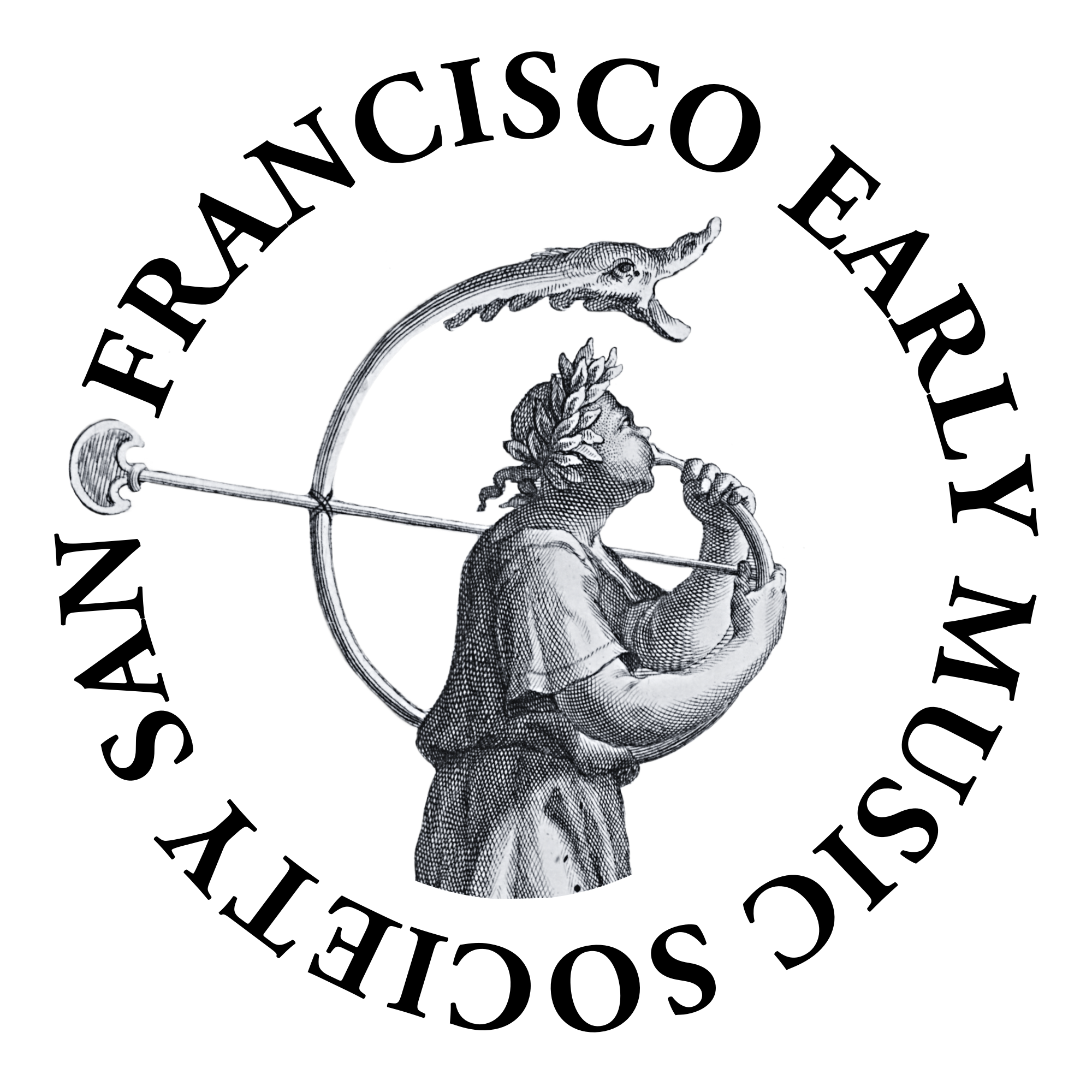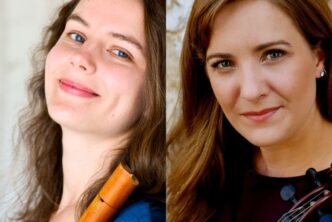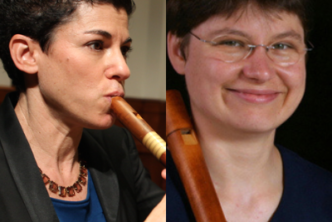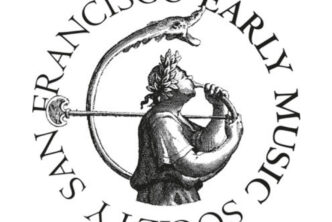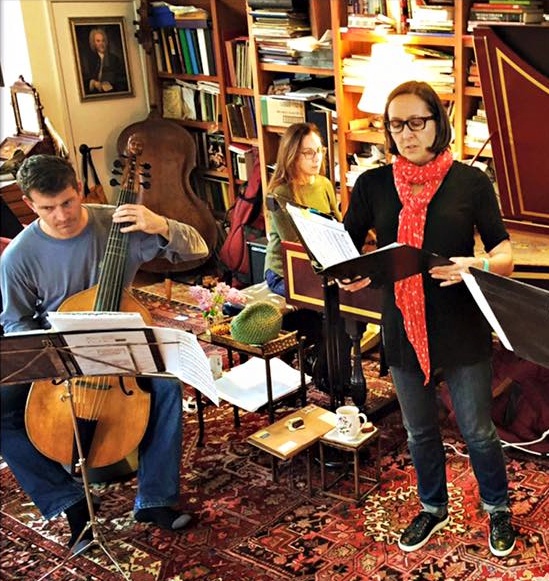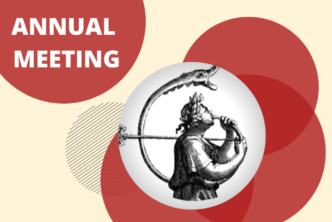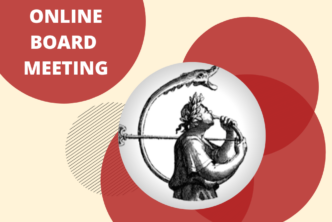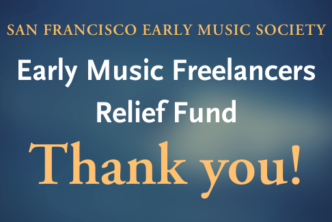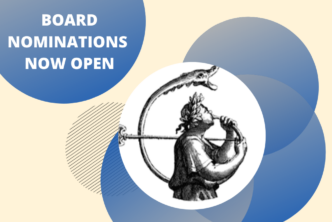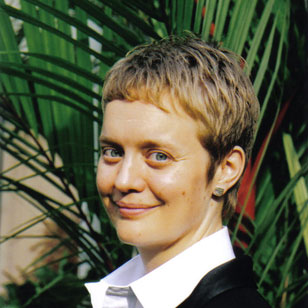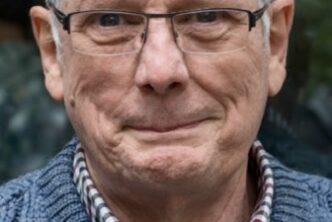Music of life & love, food & drink, nature & spirituality, adventure & humor
The SFEMS concert series resumes the weekend before Thanksgiving with a cornucopia of music from medieval Spain. The concert will be a joint performance by Tres Hermanicas (Nell Snaidas, voice & early guitars; Shira Kammen, vielle, rebec, medieval harp & voice; and Daphna Mor, voice, ney & recorders) and Aquila (Phoebe Rosquist, voice; Michele Kennedy, voice; Peter Maund, percussion; Gari Hegedus, oud, saz & percussion; and Shira Kammen, vielle, rebec, medieval harp & voice). Together, they will perform songs of the Sephardim, the Jews who inhabited the Iberian Peninsula from the time of the Moorish conquest in the 8th century until their expulsion in the early 16th century, along with some of the famous Cantigas de Santa Maria, miracle ballads, compiled in the mid-13th century by Alfonso X “El Sabio,” King of Castile and Leon. Members of the two ensembles contributed the following notes on the music they will perform.
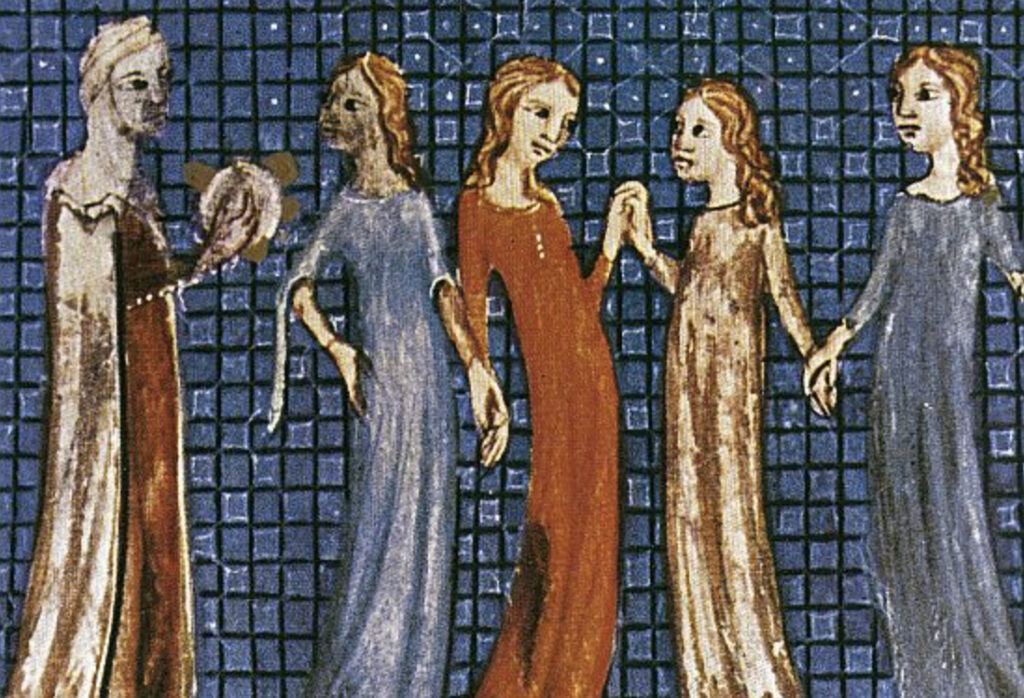
We present this concert combining Sephardic music and medieval Cantigas, celebrating life, love, food & drink, nature, spirituality, adventure & humor. In Christian and Sephardic cultures, both the rose and the almond are powerful symbols. The rose, with its beauty and sensual fragrance evokes love, fragility and the Virgin Mary, where the almond symbolizes renewal, hope, perseverance and virginity. There is a myth in Judaism that links the bottom of the almond to the entrance to the underworld. This program celebrates the sacred and secular delights of both cultures through storytelling, dance and song.
We are grateful to SFEMS for inviting a program such as this, an effort of bi-coastal admiration in which two new ensembles devoted to early and traditional music, Aquila and Tres Hermanicas, decided to join forces to create a concert especially for the San Francisco Early Music Society.
These ensembles, comprised of singers and instrumentalists playing with a colorful mix of western and middle-eastern influences on voices, ney, vielle, recorders, oud, percussion (and more), share the love for the repertoire of Early Spain and delight in the challenge of the art of improvisation and interpretation, making each performance a celebratory unique experience.
Tres Hermanicas focuses on bringing the depth and sweetness of the songs of the Sephardim to the concert stage. This astonishing musical heritage, filled with tales of exile and courtship, family life, expressed in infectious rhythm and haunting melodies, has been preserved for over 500 years by oral tradition, primarily by the women of the culture.
Aquila was formed on a high desert trail as a spontaneous burst of Trecento singing from founders Shira Kammen and Phoebe Rosquist. They have gone on to specialize in songs of the Spanish diaspora, such as Sephardic songs in Ladino and the Galician Portuguese collection of Cantigas de Santa Maria, commissioned by Alfonso El Sabio in the 13th century. Aquila’s favorite performance to date was at the vibrant local community center Las Cenzontles Cultural Arts Academy in San Pablo, where Peter Maund first joined them. They are very pleased to have guests Michele Kennedy and Gary Hegedus for this program.
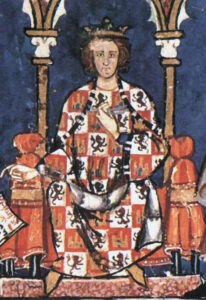
In addition to the music of the Sephardim, we have compiled some of our favorite pieces from the Cantigas de Santa Maria, a rich repertoire of (sometimes bawdy) Marian Miracles and devotional songs to the Virgin Mary, which features the BVM’s ultimately forgiving nature. No matter what kind of predicament humans get themselves into, in the end Mary, with her angels, sides with sinners and serves as a beacon of hope for redemption against all odds.
A brief note on instruments in the music of the early Middle Ages and the Sephardic repertoire: In addition to a handful of mostly monophonic pieces, we are left without many concrete examples of instrumental pieces in the early Middle Ages, including the era of the Cantigas de Santa Maria. We have many references in the different genres of medieval music to instruments (most often vielles and harps) accompanying singers, but not much information about what they actually played. There are a few clues but nothing absolute, which makes the process of figuring out what to play a most adventurous and treacherous one. We have to take on the task of reimagining what roles instrumentalists would take; there are many different ways one could accompany a song (if that song wished to be accompanied), and there are many kinds of instrumental pieces one can create, based on the vocal models we have, incorporating as many signposts as we can from the texts, the rhetoric, the rhyme, the imagery, the musical language of the time, and most importantly the music inherent in the poetry. The music theorist Johannes Grocheo (ca. 1255–ca. 1320) said of the vielle that “A good performer on the vielle uses normally every cantus and cantilena and every musical form.” We take his words to heart and work to explore every musical form.
As far as the instruments intended to accompany Sephardic songs, or play the music, since the genre itself is broad and moves throughout many countries, we have chosen to use instruments represented in some of those cultures, for example the saz, oud, rebec (which is represented in early and traditional iconography), various hand drums including the darabuka and riqq, and the ney (the Middle Eastern and North African reed flute). Turkish, Armenian, Balkan, North Africa, and parts of the current Middle East. Instrumentalists playing these styles of music are called upon to improvise, compose, arrange, or otherwise create their own parts, which is part of the challenge and appeal of this fine sport!
In this time of stress and global insecurity, we are reminded that our world has often experienced division and cruelty. It is our intention to bring hope for better times through this cross-cultural exploration of music from Spain by communing with our beloved fellow musicians and music lovers and sharing a dance or recipe or two. Both Christians and Jews, in fact all humankind throughout history, love to partake in the same activities: eating, telling stories and creating rituals. Honoring our shared human experience and in the fine tradition of Tikkun Olam (healing the world) may each piece played and sung inspire us to forgive each other and try to help make the world a better place for us all to inhabit, together, in peace, one note at a time.
* * *
SFEMS presents the Tres Hermanicas and Aquila performing Roses & Almonds at 8:00 p.m., Friday, November 22, at First Presbyterian Church, 1140 Cowper Street at Lincoln, in Palo Alto; 7:30 p.m. Saturday, November 23, at St. John’s Presbyterian Church, 2727 College Avenue, in Berkeley; and 4:00 p.m. Sunday, November 24, at Church of the Advent, 261 Fell Street, in San Francisco. Mini-subscriptions are available. Individual Tickets may be purchased online, through the SFEMS box office at 510-528-1725, or at the door 45 minutes before each performance.

